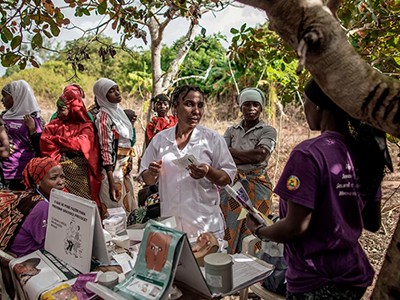China’s efforts to redefine how scientific merit is measured are the subject of fierce debate. At the heart is a contradiction: Chinese institutions encourage researchers to follow global scientific norms, but they measure performance against locally defined priorities. Many scientists, especially those at early career stages, find it hard to navigate this system with its conflicting incentives.
Science’s big problem is a loss of influence, not a loss of trust
In March, for example, the National Science Library of the Chinese Academy of Sciences (CAS) updated its journal-ranking system — which complements other standards such as impact factors and Clarivate’s Journal Citation Reports. Using article citations, its database is re-evaluated each year with a complex algorithm. Journals might move up or down the tiers. However, in 2025, some elevations of domestic titles over prominent international ones caught scholars’ attention. For example, CAS’s Chinese Physics Letters moved to tier 1, whereas the American Chemical Society’s Nano Letters (a global leading title in nanoscience) dropped to tier 2 (see go.nature.com/4atq2xx). Critics attribute such changes to opaque metrics and disciplinary reclassifications — for example, materials science can be classed as engineering or as physics.
Such assessments are well intentioned, but can have unintended consequences. For example, the CAS library states that its system, which is designed to assess journals’ scholarly impact and to inform institutional research-management strategies, should not be applied to evaluations of individual researchers. Yet evidence suggests that scholars in China choose where to publish to align with this ranking. For example, between 2015 and 2019, journals that were downgraded in the CAS list saw a 14.8% decline in articles by authors in China1. Scholars at less-prestigious institutions were more likely to do so to ensure that their career progressed than were those at more-prestigious ones.
Measuring societal impact: how to go beyond standard publication metrics
Anecdotally, colleagues have told me that work they published in prominent overseas journals received less attention in promotion reviews than did studies published in local ones. Some researchers refer to submissions to certain domestic journals as ‘academic tribute’ — not out of disrespect but because of frustration with the current evaluation frameworks.
If these trends continue, concerns might arise over researchers’ ability to connect globally. That might further dissuade top researchers from coming to China to pursue self-directed innovative work. For example, one 2023 study found that 89% of expatriate top-tier scholars who received offers through China’s Thousand Talents programme decided to continue their careers abroad2. Three measures could help stakeholders to realign incentives with scientific universality while respecting national contexts.




